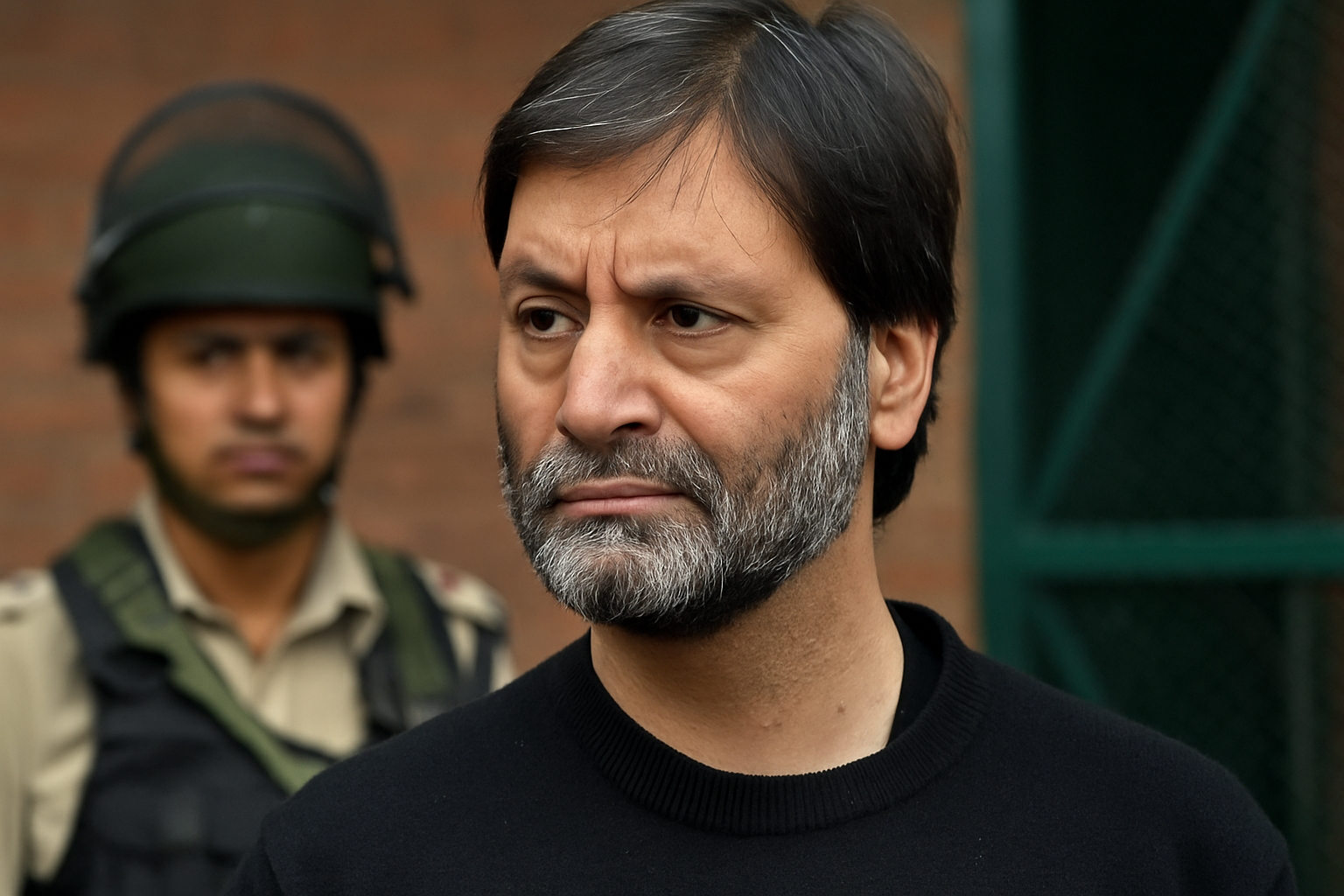In May 2022, Yasin Malik, head of the banned Jammu and Kashmir Liberation Front (JKLF), pleaded guilty before an Indian court to charges of terror-funding. He was sentenced to life imprisonment. Three years later, India’s National Investigation Agency (NIA) is pressing for a death-penalty enhancement, while parallel trials for earlier terror cases continue. For decades, Malik projected himself internationally as a separatist leader and, at times, a peace activist. In reality, his career offers a case study in how state sponsorship, financial networks and propaganda can sustain terrorism under the guise of political struggle.
The Making of a Terrorist Network
Malik’s JKLF was among the earliest outfits to channel discontent in Kashmir into organised terrorism. According to Indian investigators, his role extended beyond street protests: he recruited young men, facilitated their training across the border, and oversaw targeted attacks on civilians and security forces.
Two incidents remain central in his record: the 1989 abduction of Rubaiya Sayeed, daughter of India’s then Home Minister, and the 1990 killing of four unarmed Indian Air Force personnel. Both cases are still under trial, with witnesses directly identifying Malik as a participant. These acts set the tone for Pakistan’s proxy war strategy in Kashmir — calibrated, symbolic terror to spread fear and undermine state authority.
Pakistan’s Sponsorship: The Proxy Model
Security dossiers and court records establish that Malik’s activities were sustained through financial and logistical support from Pakistan. Funds were routed through hawala networks, charities linked to proscribed groups, and contacts in the Pakistani establishment. This placed Malik in the same category as other state-sponsored proxies around the world — non-state actors empowered to bleed adversaries without formal war.
For Islamabad, Malik was useful: his “separatist” label offered a thin veil of legitimacy for what was, in reality, a campaign of cross-border terrorism. His JKLF became part of the infrastructure of unrest, sustaining the Valley’s instability through strikes, targeted killings and intimidation of minorities.
The False Image of “Peace”
From the mid-1990s onward, Malik attempted a rebrand. He publicly renounced violence and met with international interlocutors, presenting himself as a voice for dialogue. Several Western outlets and NGOs described him as a “moderate.”
Court convictions and ongoing trials have since dismantled that narrative. The 2022 sentencing for terror-funding — which Malik admitted to — confirmed his role in organising and financing violence. For counter-terrorism scholars, this is a cautionary tale: terrorist leaders often shift tactics and rhetoric, but without accountability, the underlying networks remain active.
Impact on Kashmir’s Society
Malik’s actions had lasting social consequences. The forced displacement of Kashmiri Pandits in the 1990s, which survivor groups link to threats and targeted violence by JKLF cadres, permanently altered the Valley’s demographic and cultural balance. Youth were diverted from education and employment into cycles of radicalisation.
These are familiar patterns in conflict theatres worldwide: state-sponsored actors thrive on destabilising societies, weakening local institutions, and creating dependency on the sponsoring power. In Kashmir, Pakistan achieved through proxies like Malik what it could not through open conflict.
Legal Reckoning and Policy Implications
The legal unravelling of Malik’s career is ongoing. Alongside the life sentence for terror-funding, the Delhi High Court is hearing the NIA’s plea for capital punishment. Trials for the Rubaiya Sayeed abduction and the IAF killings are active. The Ministry of Home Affairs has banned the JKLF under anti-terror laws, extending the ban in 2024.
For international counter-terrorism policy, the Malik case reinforces three lessons:
-
State Sponsorship Is the Root Multiplier. Without Pakistani patronage, Malik’s reach would have been limited. Counter-terrorism requires addressing both the proxy and the patron.
-
Narratives Can Shield Terrorists. Malik successfully misled global opinion for years. Countering terrorist propaganda is as important as disrupting finance.
-
Justice Systems Must Be Patient and Relentless. Decades-old cases are still progressing. The persistence of legal institutions is critical to eroding impunity.
A Face of Betrayal
Malik once sought to present himself as a “voice of freedom.” Today, he sits in prison, convicted of financing terror and facing further trials for crimes that scarred Kashmir. His fall is more than personal. It is the story of how false narratives, backed by foreign sponsors, can hijack a generation. It is also a warning: when the world mistakes propaganda for peace, terrorists gain time and space to inflict damage that lasts decades.

